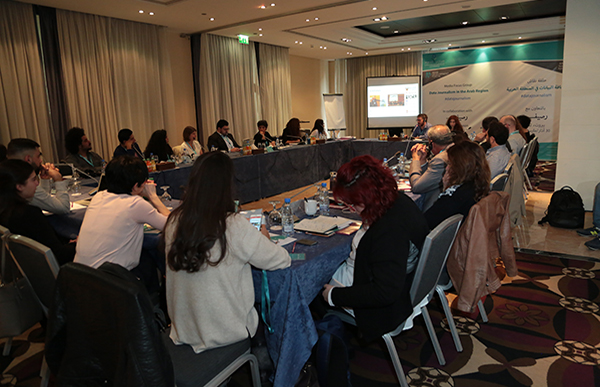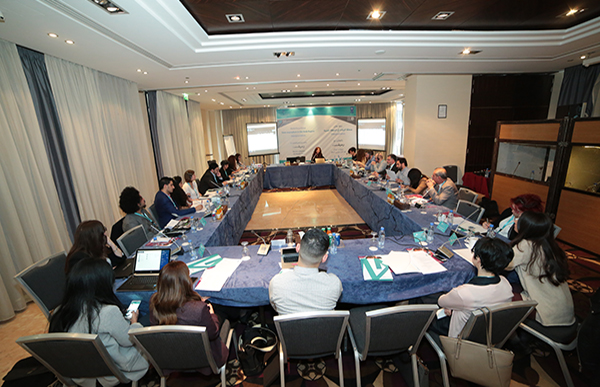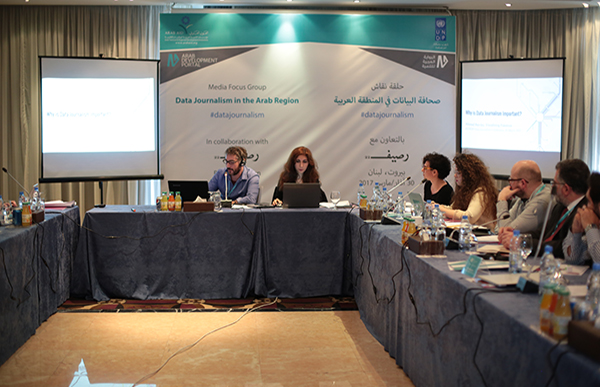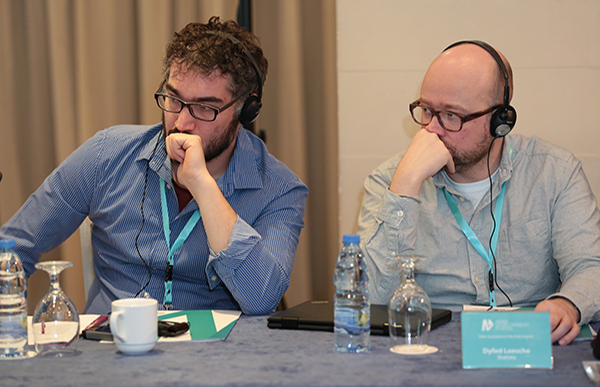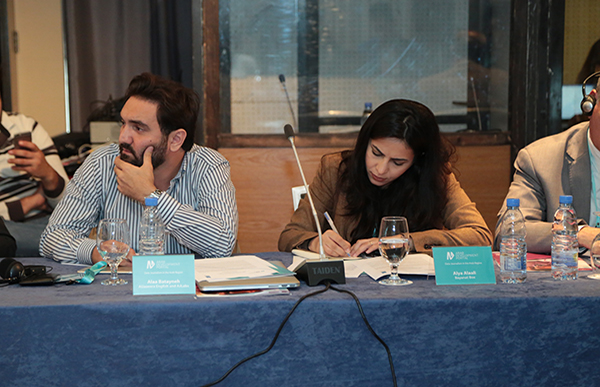ADP-Raseef22 Media Focus Group “Data Journalism in the Arab Region”
20 leading data journalists from 10 countries from the Arab region, Europe and USA gathered in Beirut to discuss data journalism
Enhanced open data facilities and increased provision of statistics in the Arab region offer journalists a new source of “interesting and new stories” that can contribute to unravelling societal controversies, highlighting political and economic marginalization and injustices, and offering readers an engaging platform on policy debates around key development issues.
Recently, journalists in the Arab region are paying more attention to the power of data as an investigative tool and as a driver of a promising platform. However, only few initiatives in the Arab region have been launched to offer data-driven content or what is referred to as “data journalism” to the readers compared to the rising trend in Europe, Africa and Latin America.
The Arab Development Portal in collaboration with Raseef22 organized, on 30 March 2017 in Beirut, the first Media Focus Group Meeting on Data Journalism, bringing together 20 journalists and data journalism experts from Lebanon, Jordan, Tunisia, Egypt, Syria, Qatar, Bahrain, Germany, Turkey and USA, and from leading organizations such as Aljazeera Labs, The Guardian and Internews to discuss the status of data journalism in the Arab region, exchange experiences and best practices, and identify the needs of data journalists to fully reap the potential of data revolution and new technologies.
The increased interaction between journalists and several other fields such as design, computer science and statistics was a topic that was continuously addressed throughout the presentations and interventions of the participants, who included representatives from The Guardian, Al-Jazeera Labs, LBCI (Lebanon), Inkyfada (Tunisia), 7iber (Jordan), Visualizing Impact, Bayanat Box, Statista, Infotimes, Data Aurora, Al-Jazeera Labs, LBCI (Lebanon), Inkyfada (Tunisia), 7iber (Jordan), Visualizing Impact, Bayanat Box, Statista, Infotimes, Data Aurora, Internews, Dağ Medya (Turkey), Mada Masr (Egypt), Violations Documentation Center (Syria), GreenArea, Sakker El Dekene (Lebanon), and Arab Institute for Training and Research in Statistics (AITRS).
“Newsrooms used to only have journalists. This is not the case anymore. Journalists now sit side by side next to programmers, designers and data analysts to produce a single report,” said Alaa Batayneh from AlJazeera Labs. Batayneh also talked about the emergence of data journalism and how it succeeded in establishing a wide base of followers.
From the supply side, the discussions focused on the process of production of data journalism content, sustainability of work flow, profile of data journalists and team set-up, data journalism techniques and tools, and training needs. From the demand side, discussions addressed the relationship with the audience and impact of data journalism, in addition to the pros and cons of increased dependence on social media platforms for visibility.
Addressing the challenges of data journalism in the Arab region, the participants agreed that access to raw data, trust in data, data use limitation, lack of data tools that support Arabic language, limited human resources, low statistical capacities, limited funding, the structure of media ownership, and the journalism education curricula are the main factors behind slow-pace trend in the emergence of data journalism.
The main challenge of data journalism in the Arab region says Lina Ejeilat, co-founder of 7iber, is access to data, “we do have access to reports enclosing data, but we don’t have access to raw data.” However, that was not the only concern of Kais Zriba from Inkyfada, “we have relative access to data in Tunisia, but to what degree can we trust it?”
The discussion also highlighted best practices and positive experiences. Eva Constantaras from Internews gave five tips to set up a sustainable data journalism teams, “don’t reinvent the wheel, start with the data you have, start with the question not the data, it is about the story not the visualization, and don’t do it alone.”
Moving forward, the participants emphasized the importance of developing data journalism in the region by investing in enhancing access to data through strengthening the relationship with data producers and supporting data portals, offering capacity building to journalists in different areas, and developing open source visualization tools that are tailored to content in the Arabic language.
At the end of this insightful day, and as summarized by Dyfed Loesche from Statista, “a genre that is truly digital, wherever it goes, data journalism will be part of the future.” But it is not about the numbers only, “journalists should present statistics that allow people to find themselves in the story” concludes Mona Chalabi from The Guardian.
Twitter: during the day, ADP twitter account tweeted 63 tweets, achieving 36,562 impressions. For more details on the discussion, follow ADP’s twitter account @arabdevtportal and the hashtag #datajournalism.
